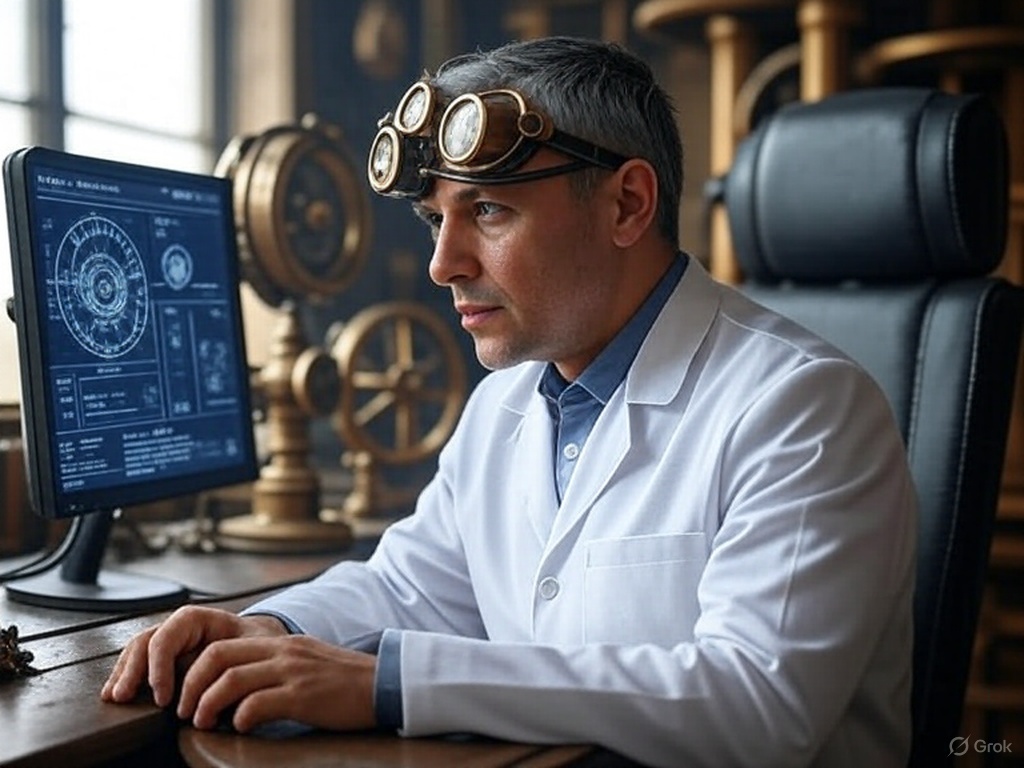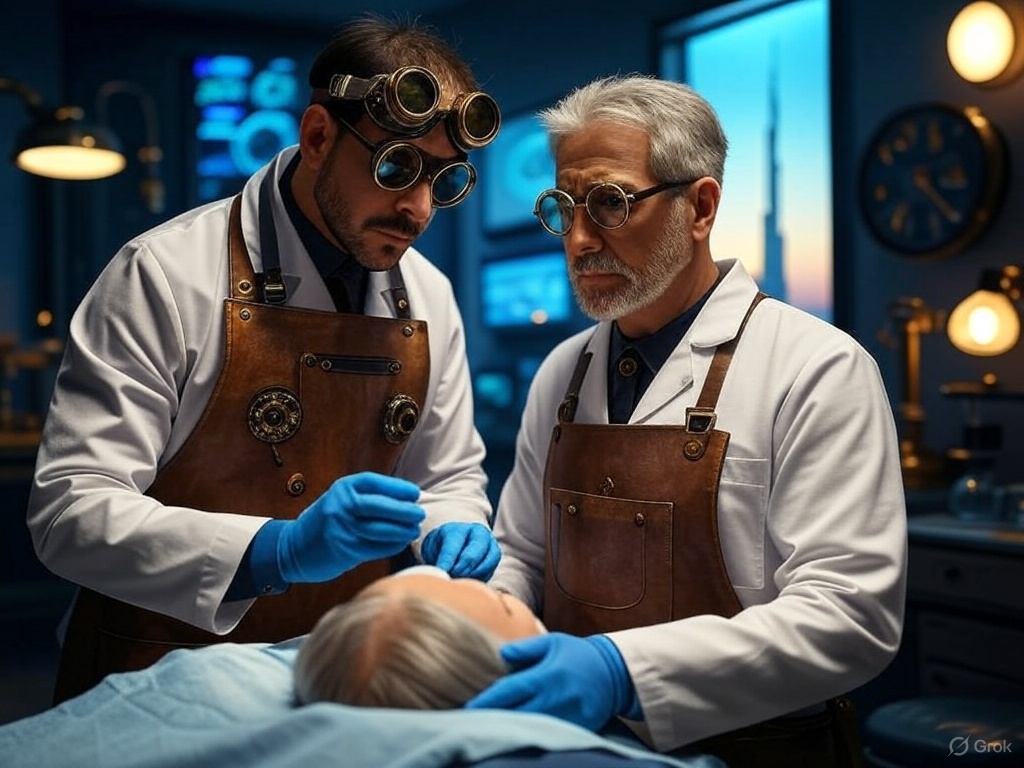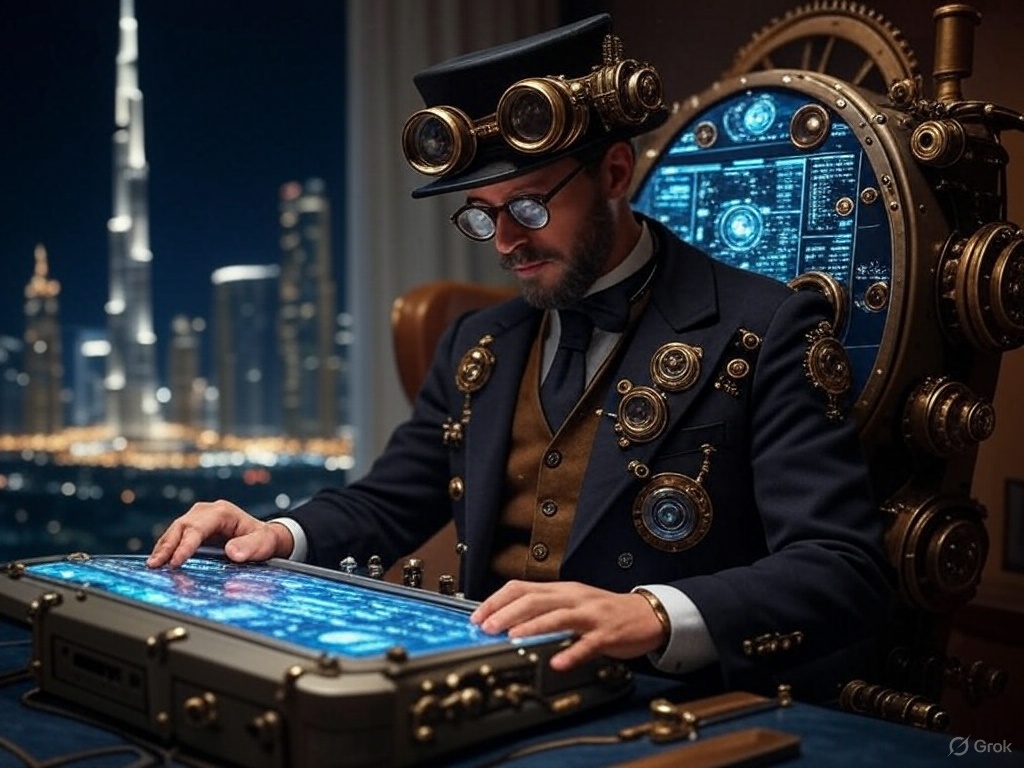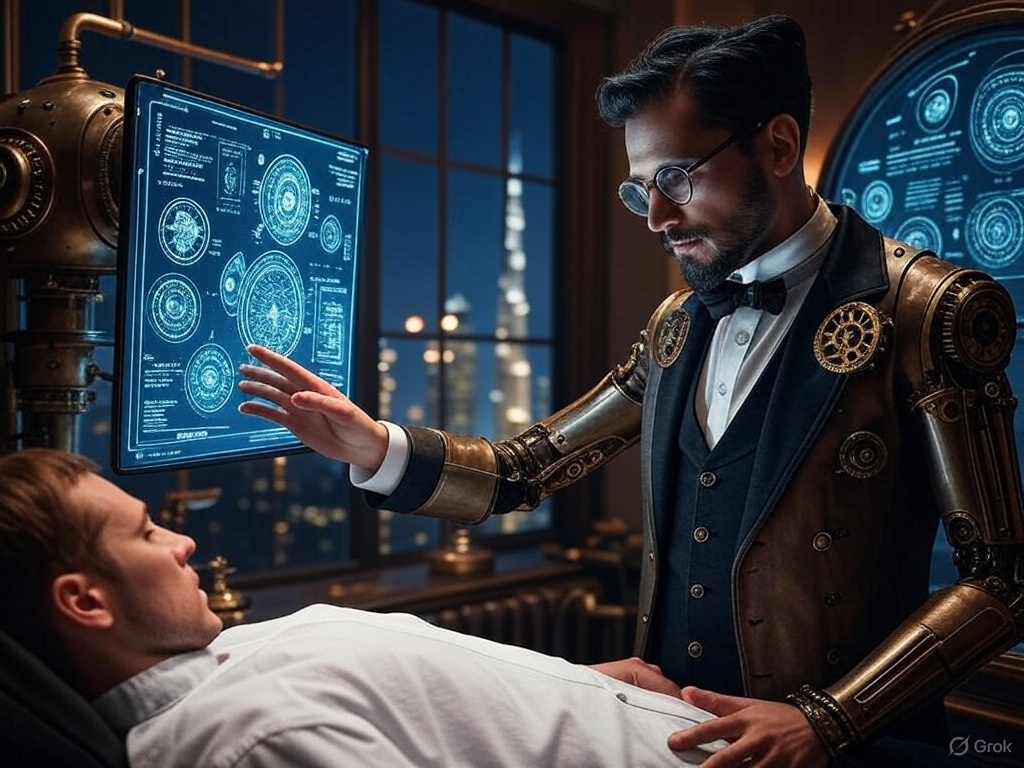A recent post on X has sparked heated debate about the role of AI in healthcare after a man shared a troubling experience involving his father’s medical treatment.
 The user described taking his father to a hospital with a deep cut from a kitchen knife, expecting a thorough examination. Instead, the doctor turned to ChatGPT, openly Googling a prompt for guidance and following its instructions without hesitation. Welcome to the future of medicine — where the doctor’s role is reduced to typing a prompt, and AI takes the lead.
The user described taking his father to a hospital with a deep cut from a kitchen knife, expecting a thorough examination. Instead, the doctor turned to ChatGPT, openly Googling a prompt for guidance and following its instructions without hesitation. Welcome to the future of medicine — where the doctor’s role is reduced to typing a prompt, and AI takes the lead.
According to the X post, the physician inputted the symptoms into ChatGPT, which returned a basic protocol: send the patient to a surgeon, stitch the wound, and monitor for cleanliness and signs of infection. While the advice aligns with standard medical practice for a deep cut, the reliance on AI over professional judgment raised eyebrows.
 The user noted that a quick glance at the doctor’s search history revealed a pattern — ChatGPT was being used for every patient, from minor ailments to more serious cases. “It’s like the doc outsourced my dad’s care to a chatbot,” the user wrote, sparking a mix of outrage and amusement in the comments.
The user noted that a quick glance at the doctor’s search history revealed a pattern — ChatGPT was being used for every patient, from minor ailments to more serious cases. “It’s like the doc outsourced my dad’s care to a chatbot,” the user wrote, sparking a mix of outrage and amusement in the comments.
The incident highlights a growing trend among healthcare professionals. A 2023 study by the American Medical Association found that 1 in 5 physicians had used AI tools like ChatGPT for clinical decision-making, often citing time constraints and the need for quick access to information.
Also read:
- China’s Three Gorges Dam Slows Earth’s Rotation, Lengthening Days by Microseconds, NASA Confirms
- The High Cost of Hype: Streamer Agr0ed’s 100,000 “FaZe Clan” Chant Falls Flat
- U.S. Introduces Comprehensive Crypto Market Structure Bill
 While AI can provide accurate, evidence-based protocols—such as the one given for the kitchen knife injury — it lacks the nuance of human judgment. For instance, ChatGPT’s advice didn’t account for potential complications like nerve damage or the patient’s medical history, which a seasoned doctor might have flagged during a physical exam.
While AI can provide accurate, evidence-based protocols—such as the one given for the kitchen knife injury — it lacks the nuance of human judgment. For instance, ChatGPT’s advice didn’t account for potential complications like nerve damage or the patient’s medical history, which a seasoned doctor might have flagged during a physical exam.
On X, some users defended the doctor, arguing that ChatGPT’s protocol was “good enough” for a straightforward case. Others, however, called it a “terrifying glimpse into AI-driven medicine,” pointing out that over-reliance on AI could erode trust in healthcare.
This isn’t the first time AI has made waves in medicine.
Tools like ChatGPT have been praised for assisting with diagnostics, summarizing patient records, and even suggesting treatment plans. But stories like this one reveal the risks of doctors leaning too heavily on technology.
 The patient in this case received adequate care — his father’s wound was stitched, and he’s recovering — but the lack of hands-on assessment left the family uneasy. “What if it had been something more serious?” the user asked in a follow-up post.
The patient in this case received adequate care — his father’s wound was stitched, and he’s recovering — but the lack of hands-on assessment left the family uneasy. “What if it had been something more serious?” the user asked in a follow-up post.
As AI continues to infiltrate healthcare, the line between tool and decision-maker blurs. The doctor in this story isn’t alone; thousands of physicians worldwide are turning to AI for guidance, especially in high-pressure environments.
But when a chatbot’s prompt replaces a doctor’s expertise, patients may wonder who — or what — is really in charge. For now, the future of medicine looks increasingly digital, but at what cost to the human touch?






